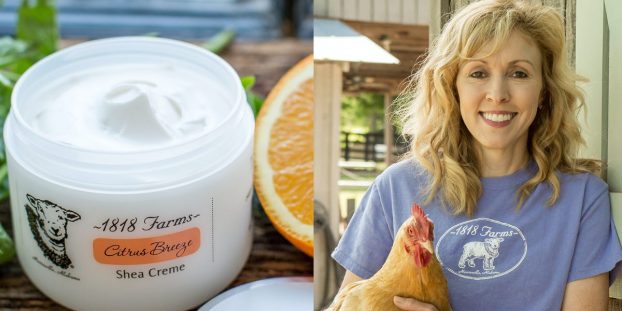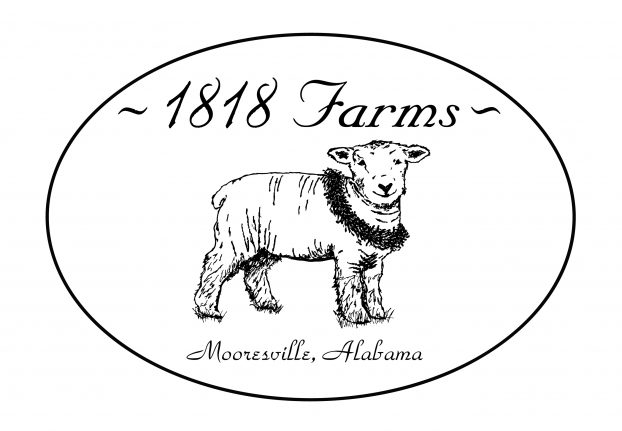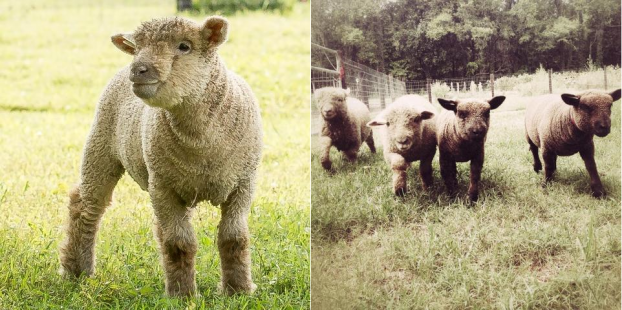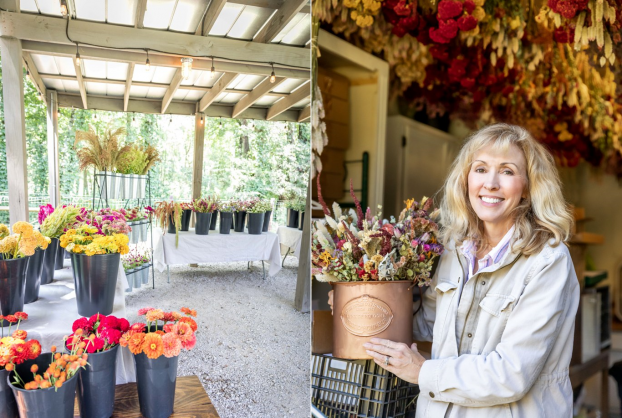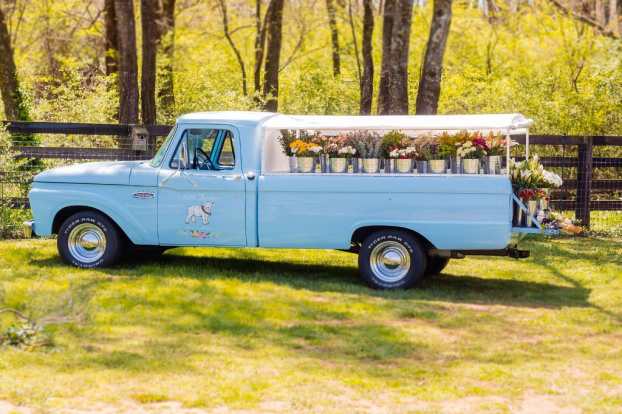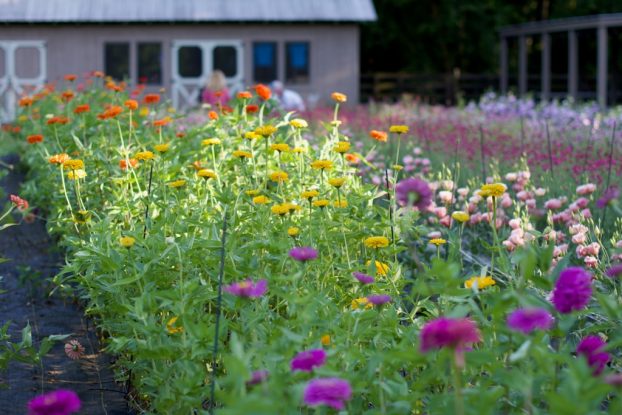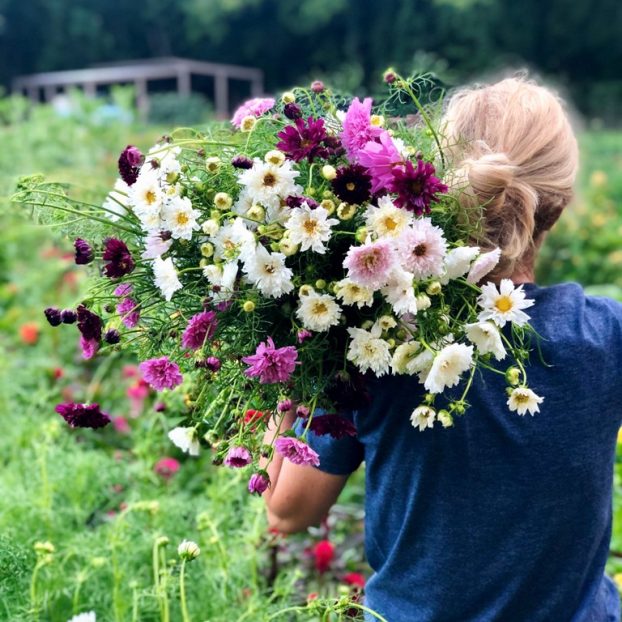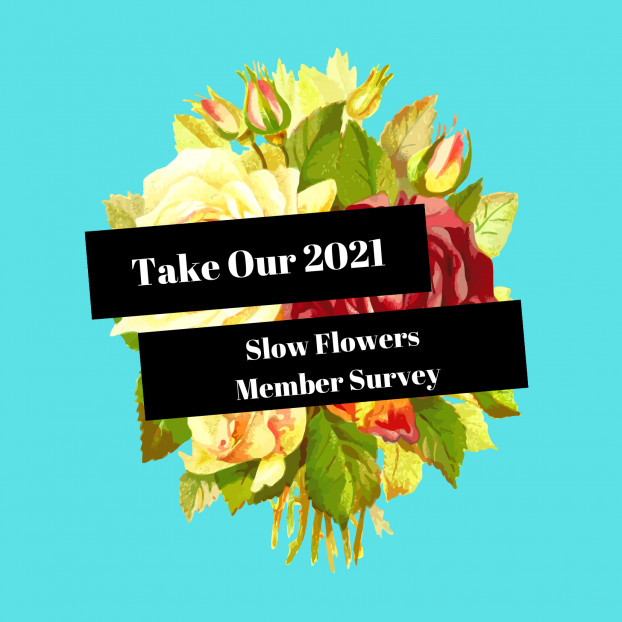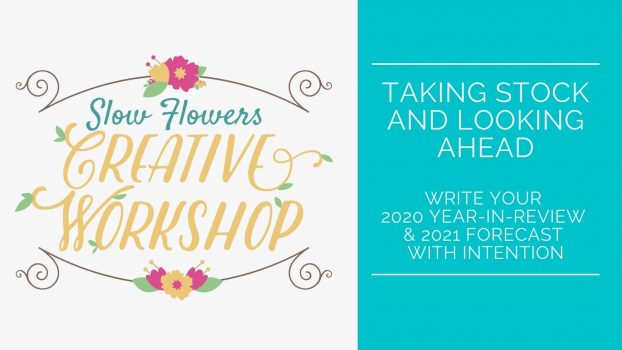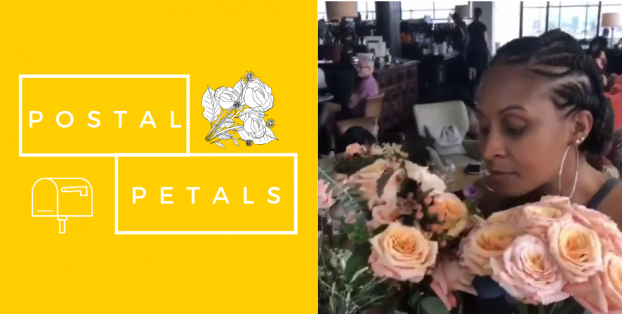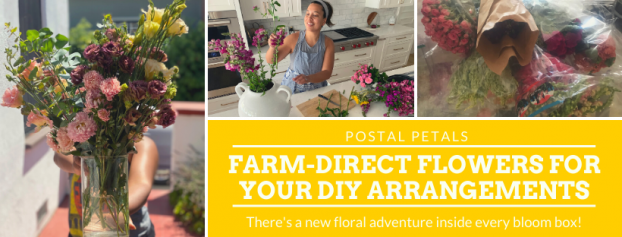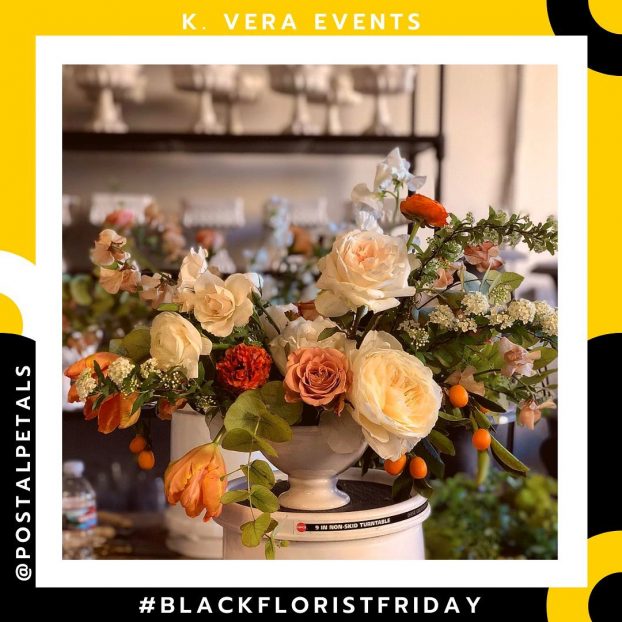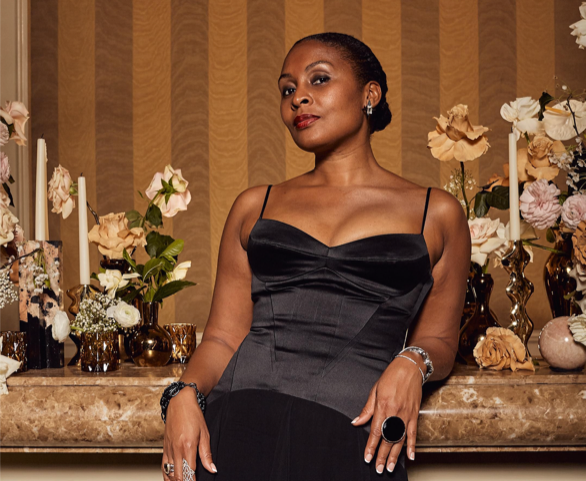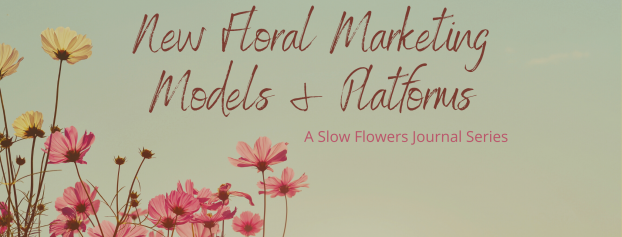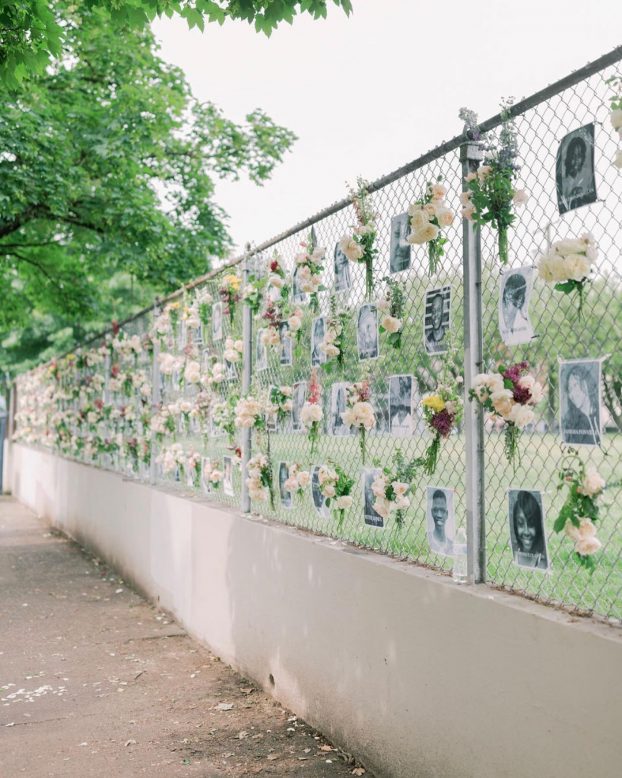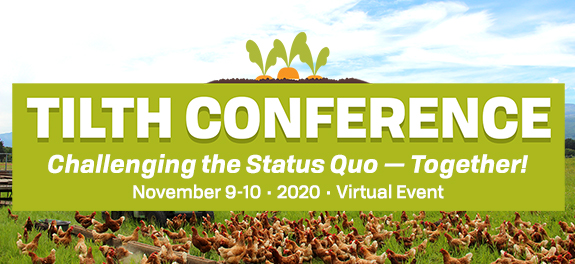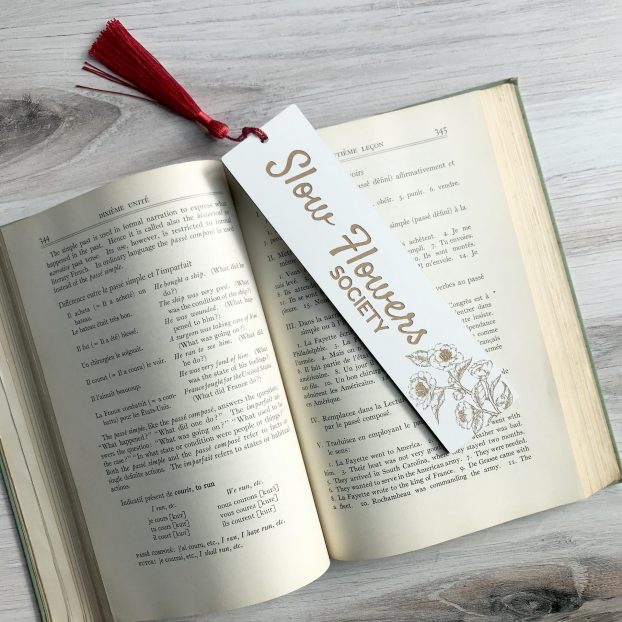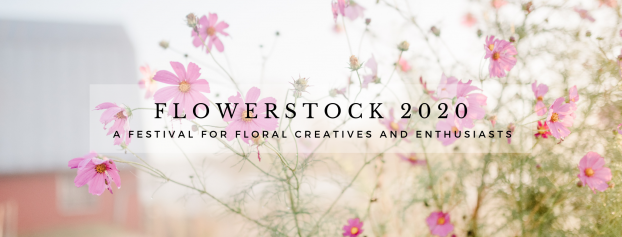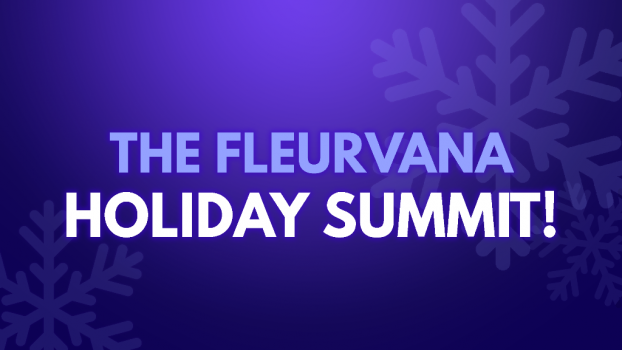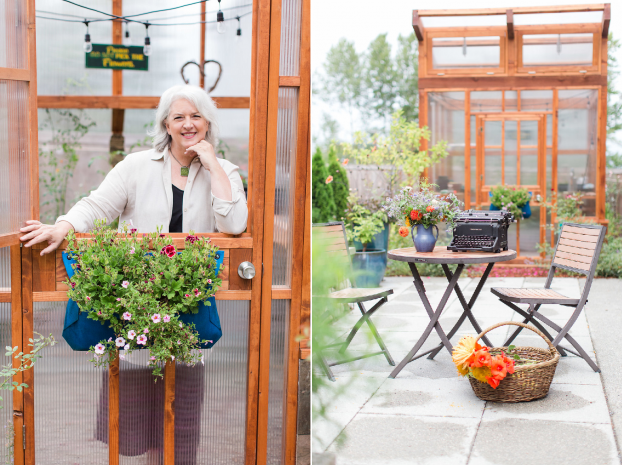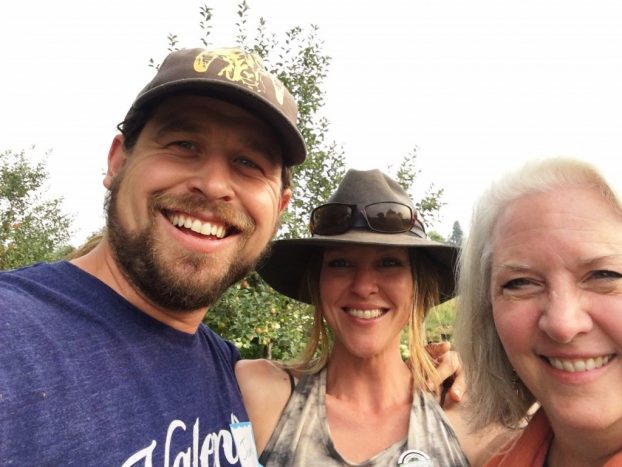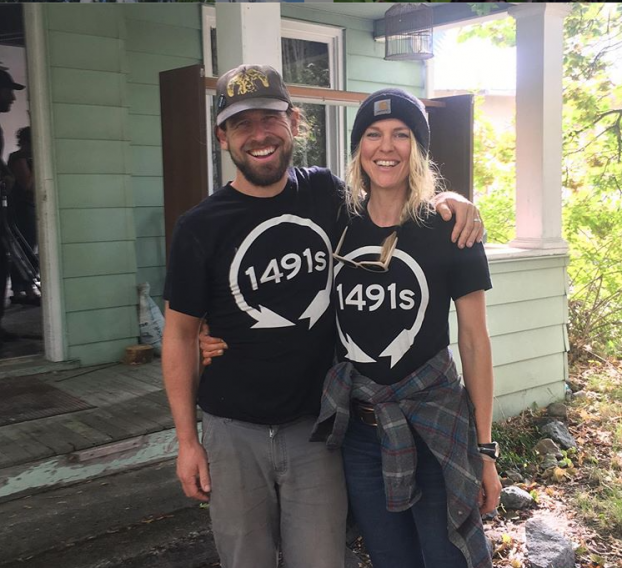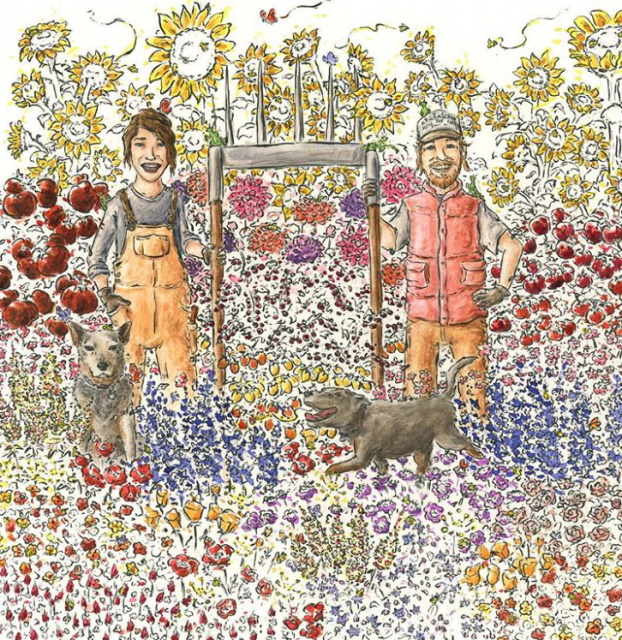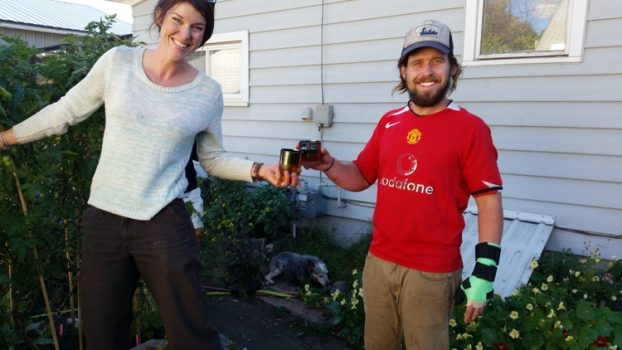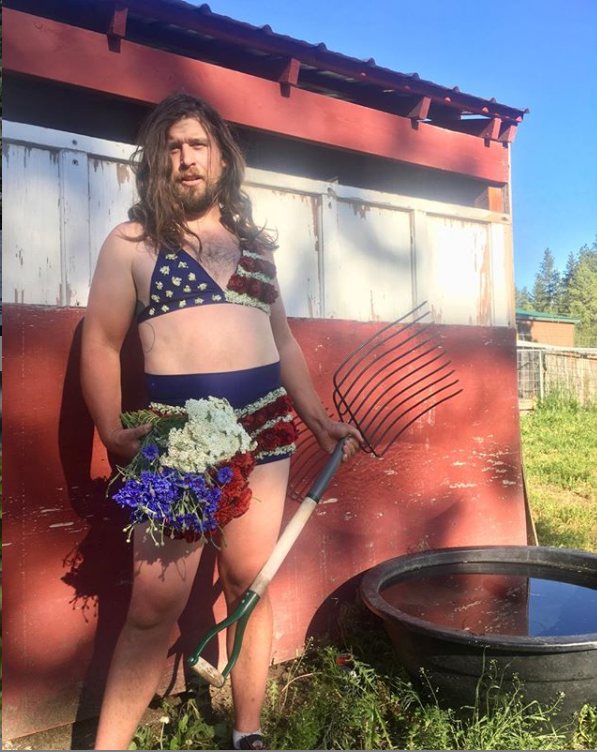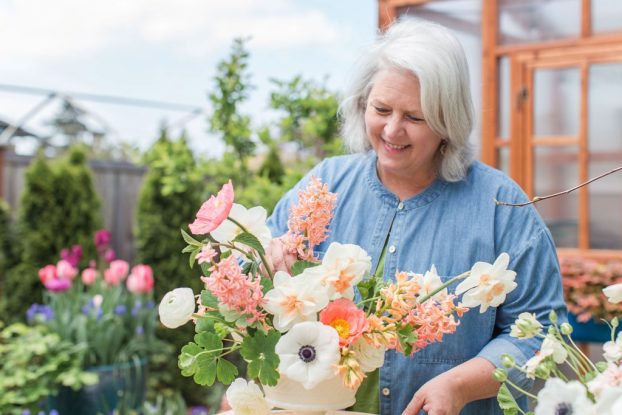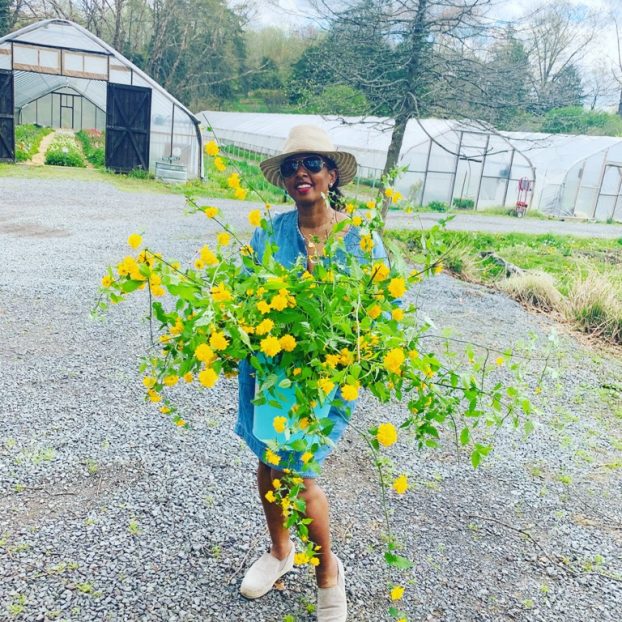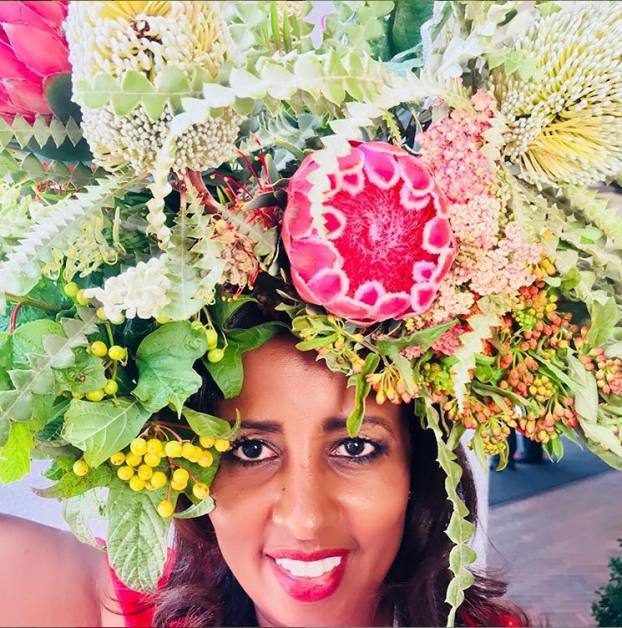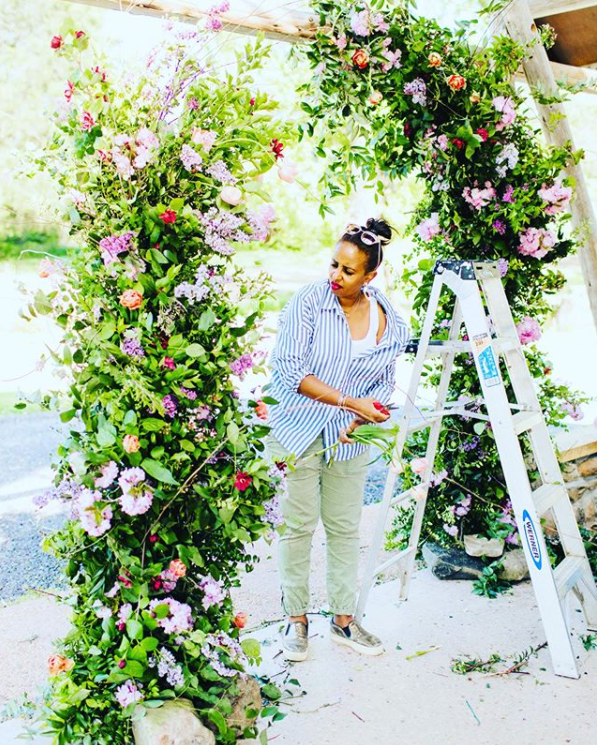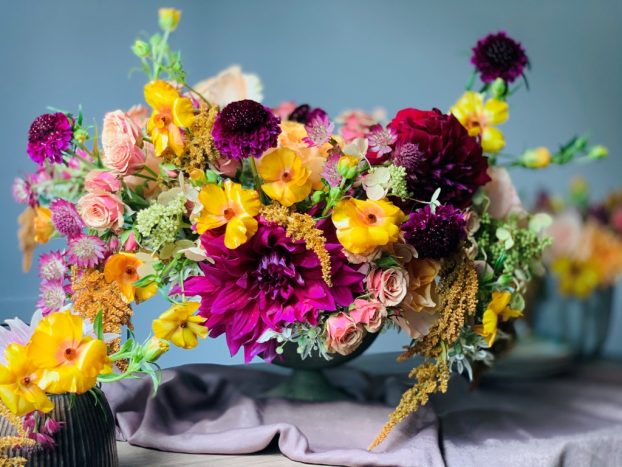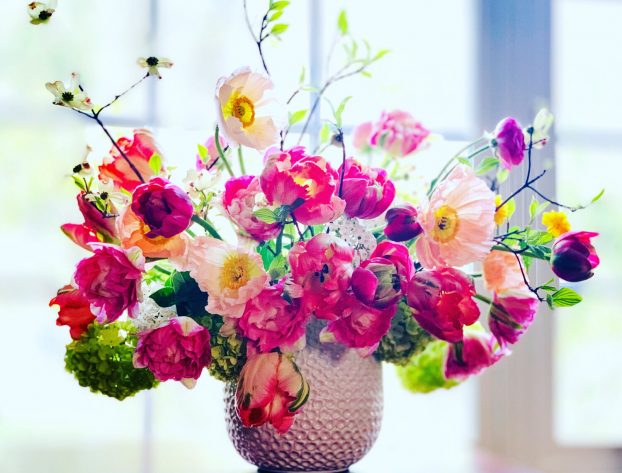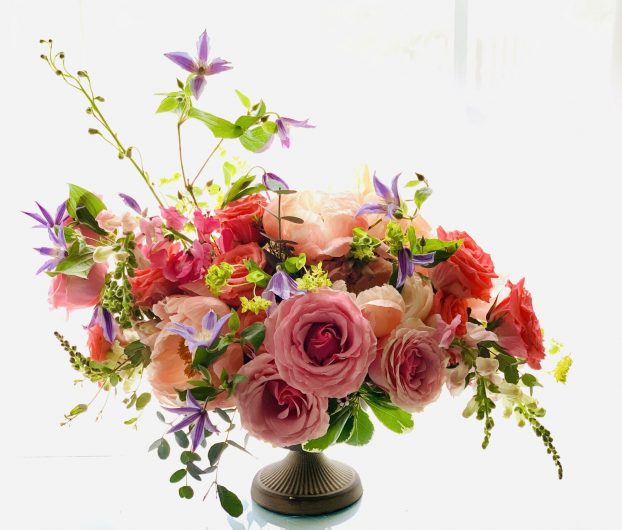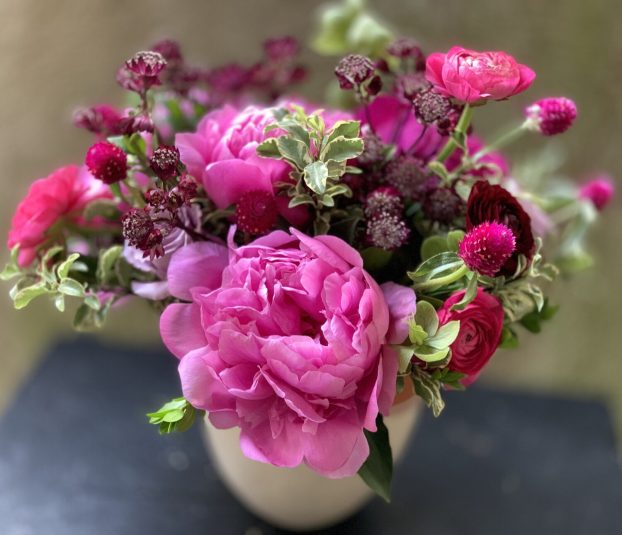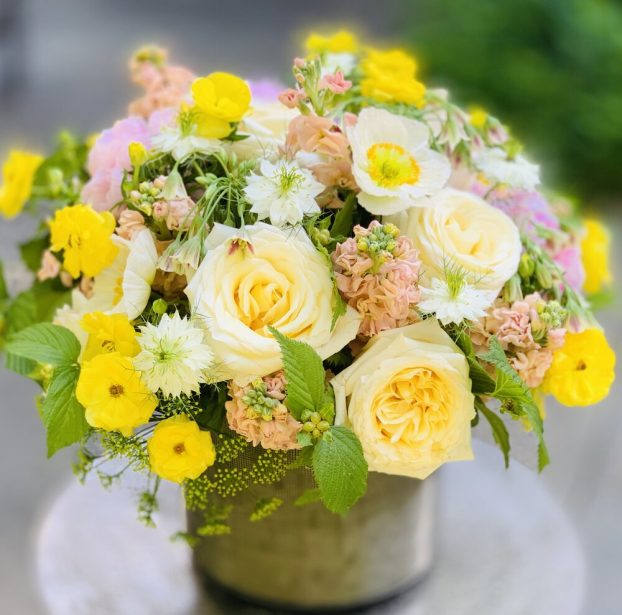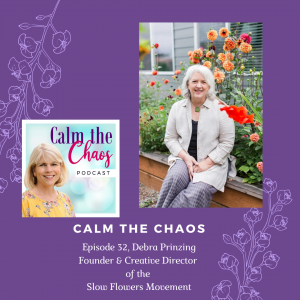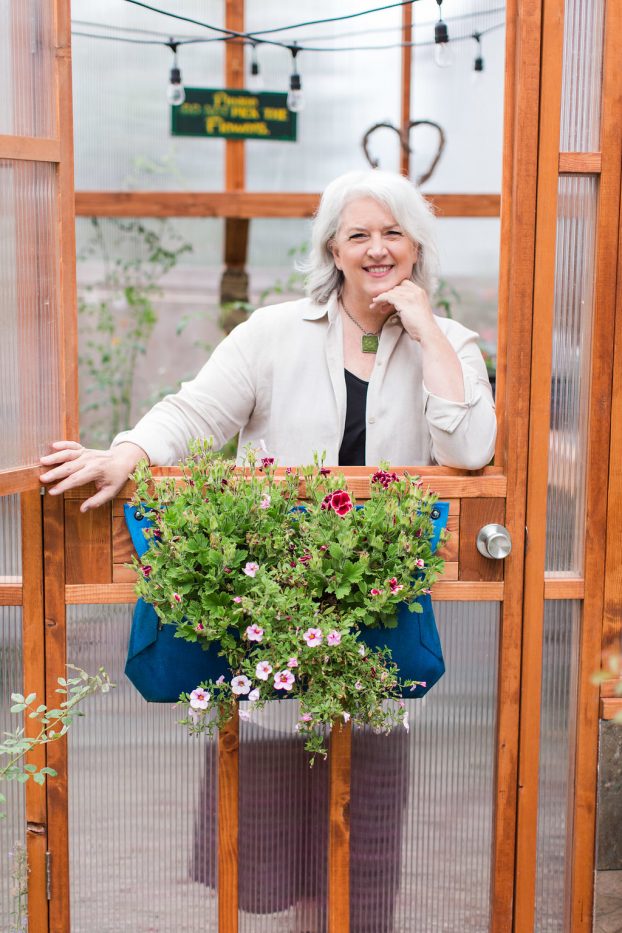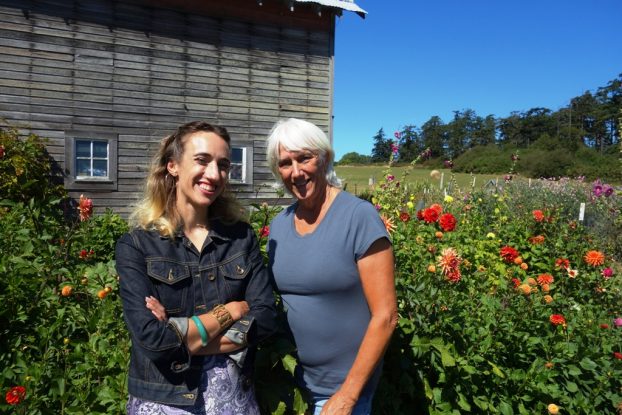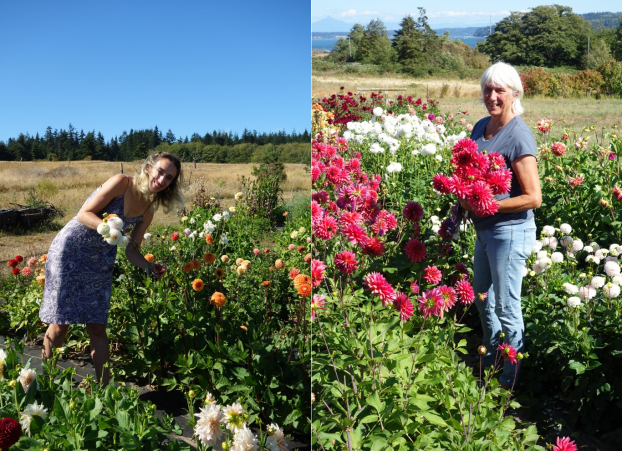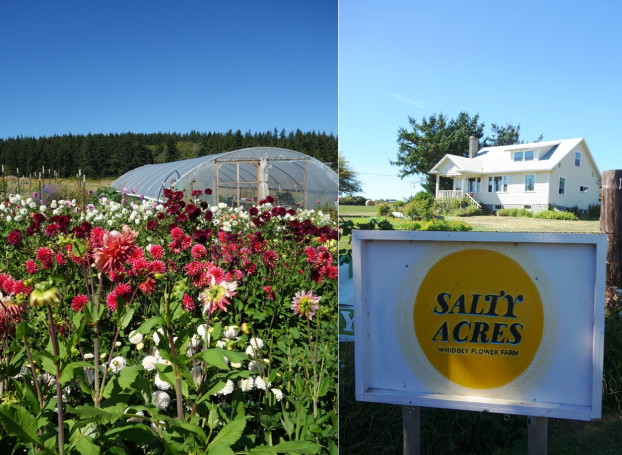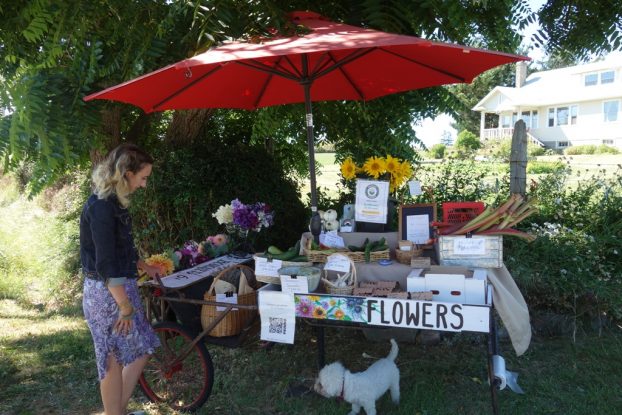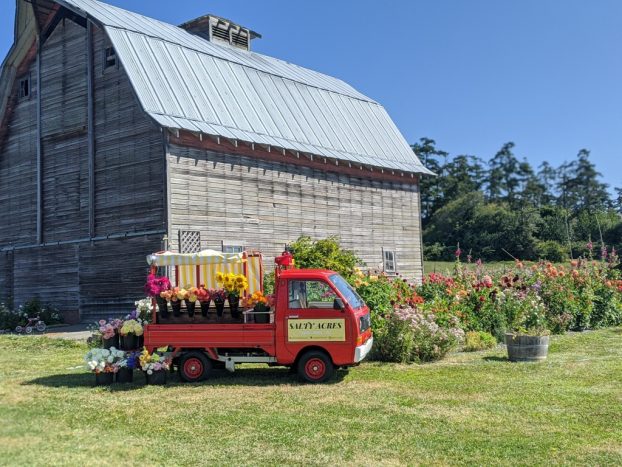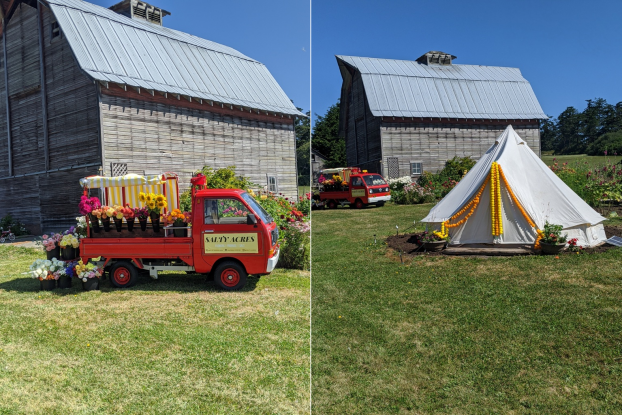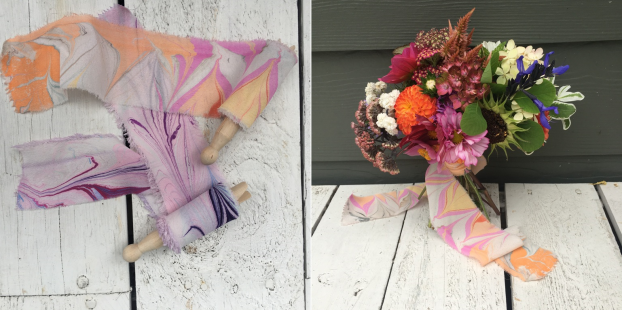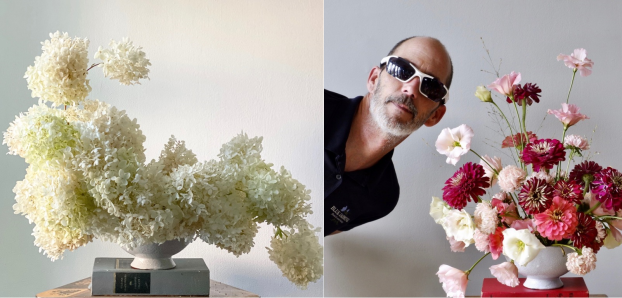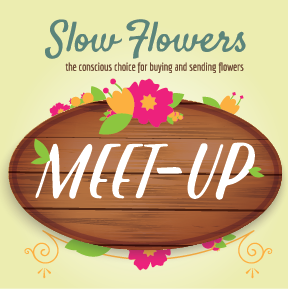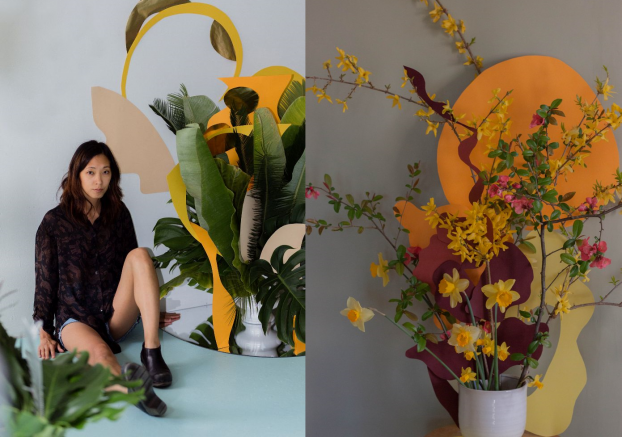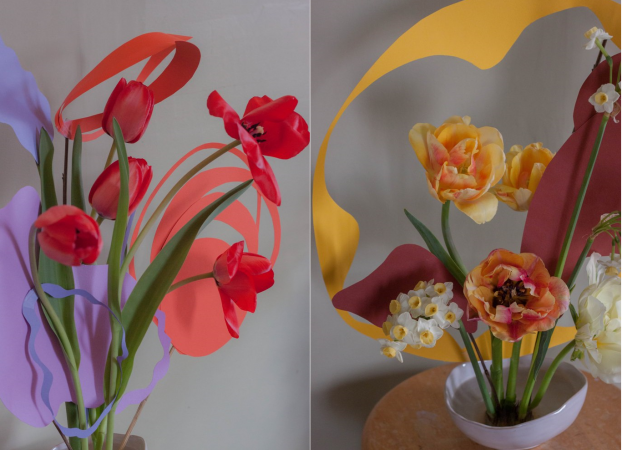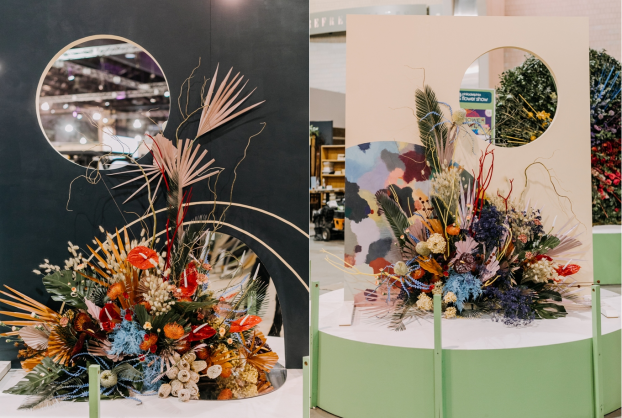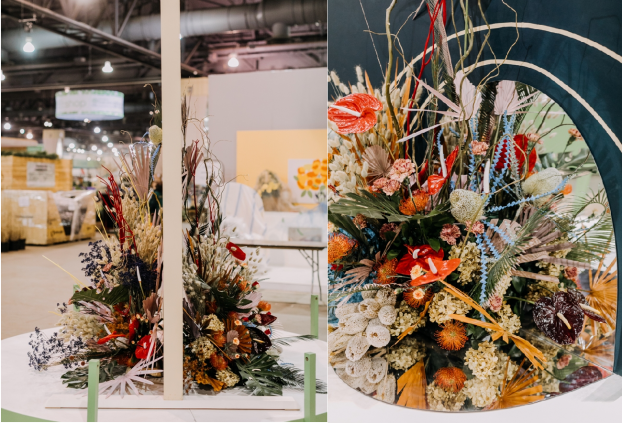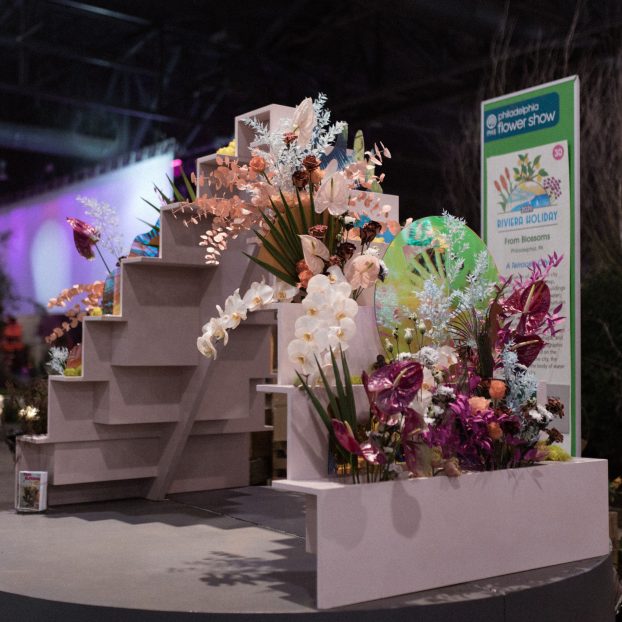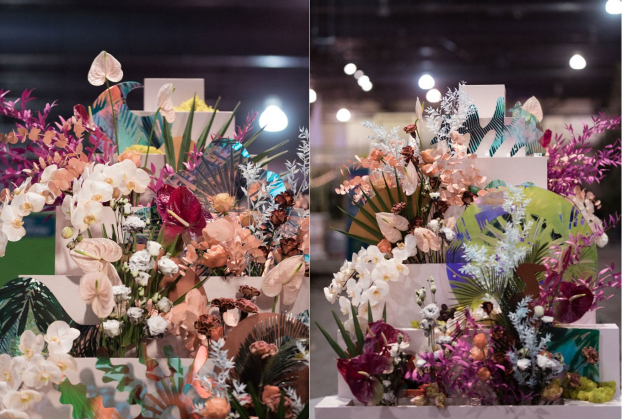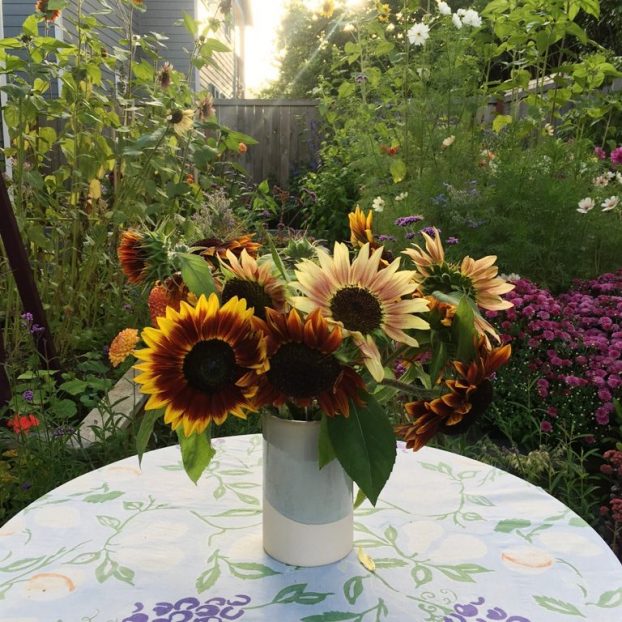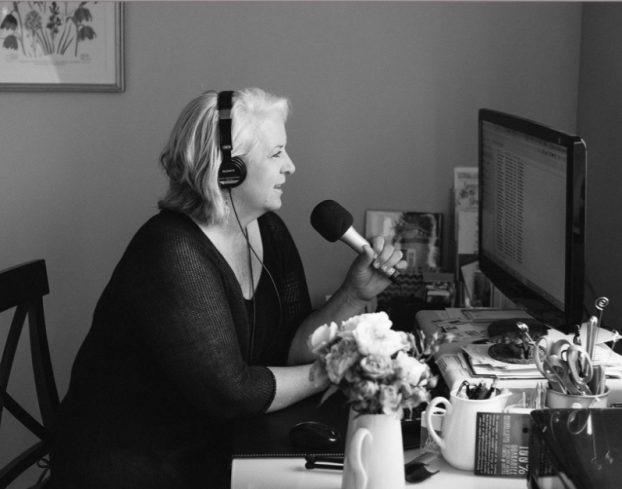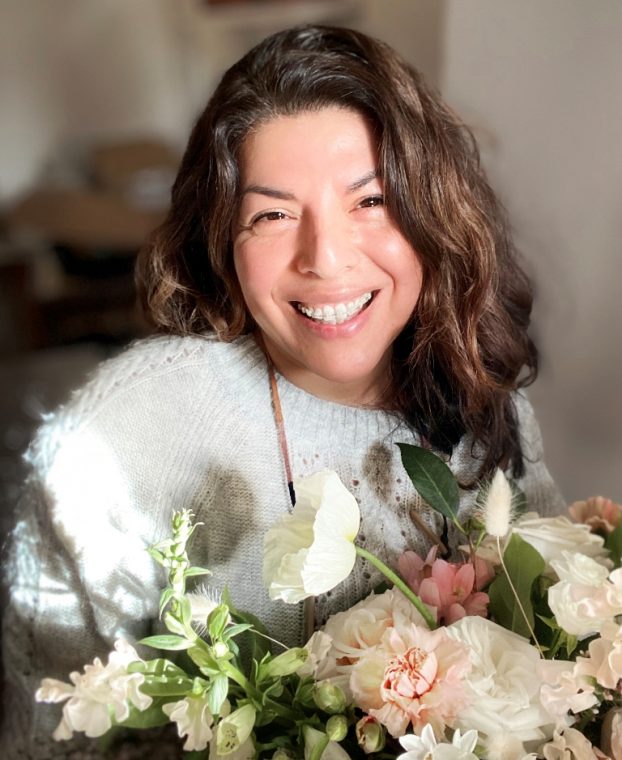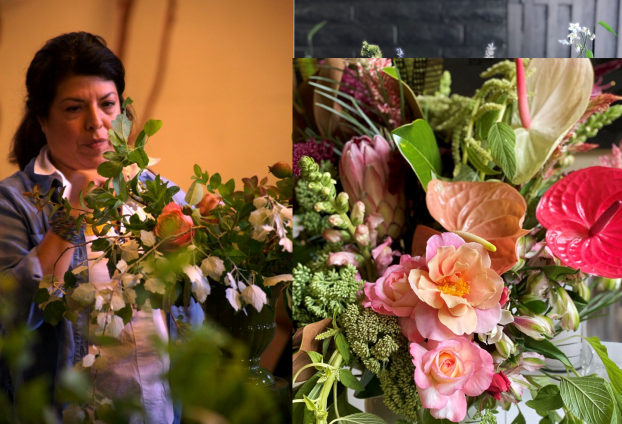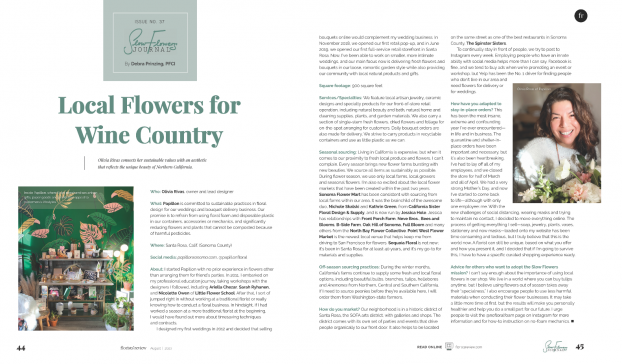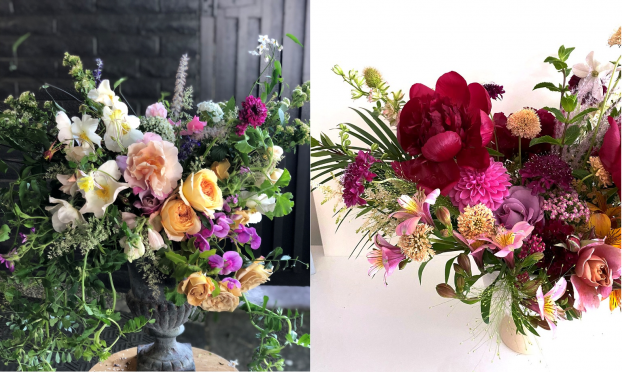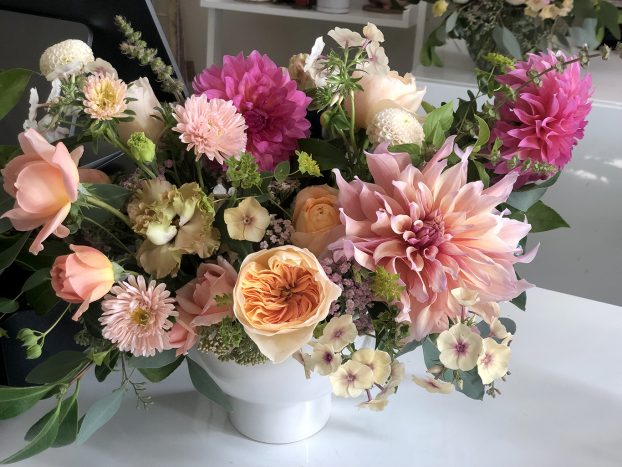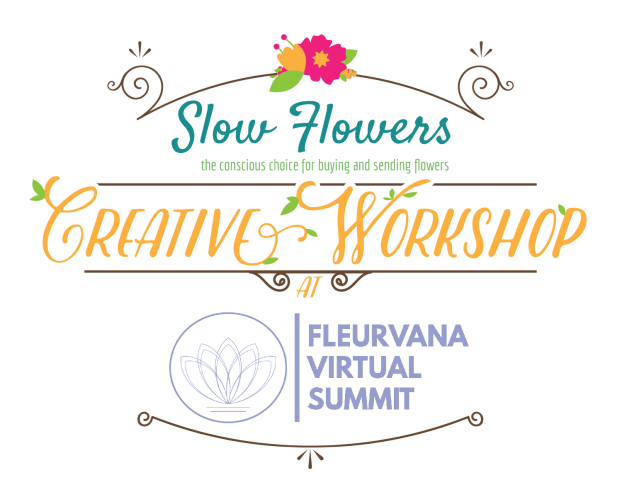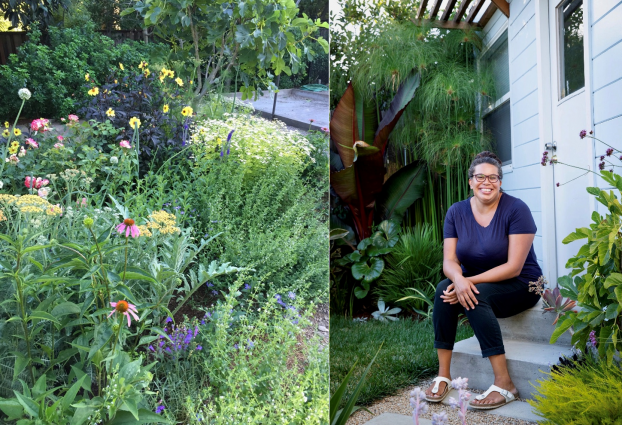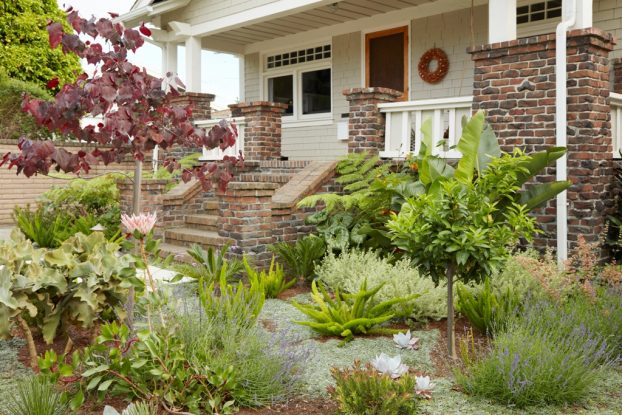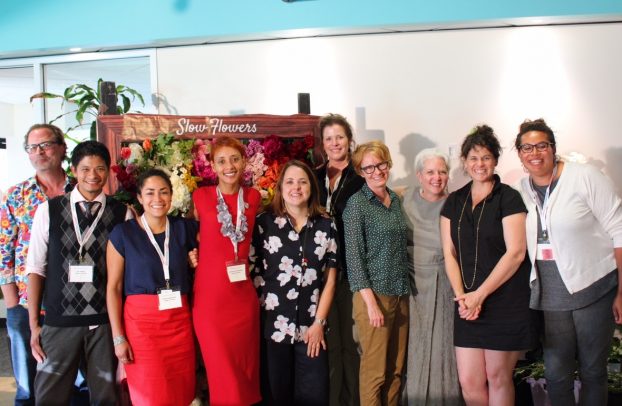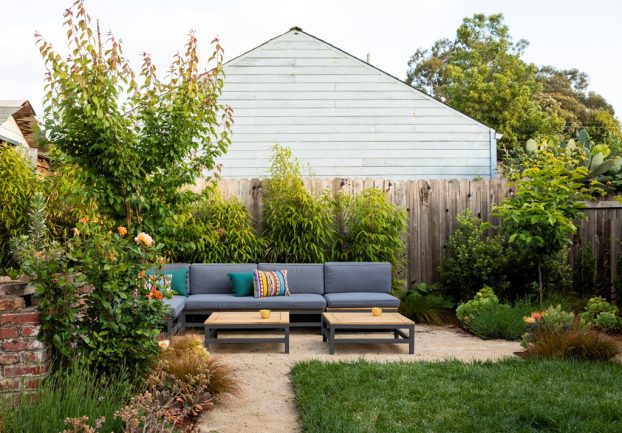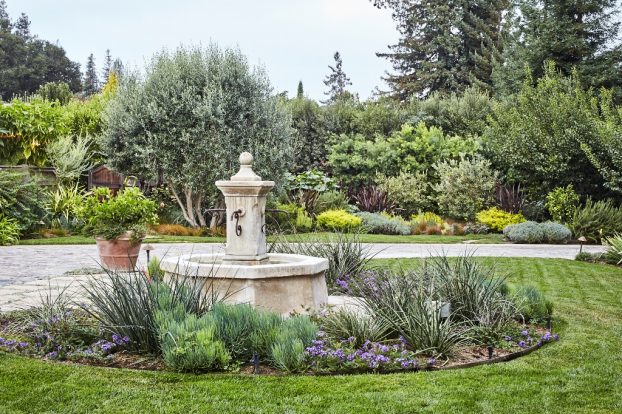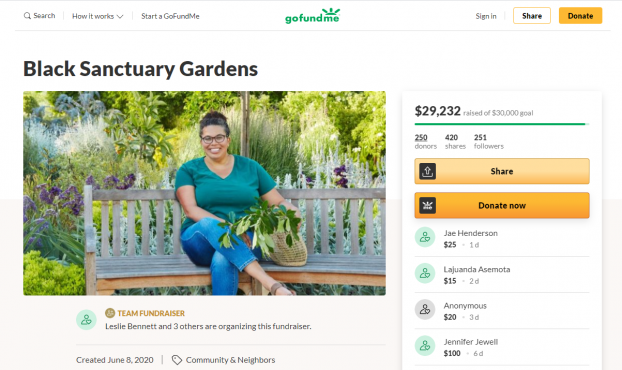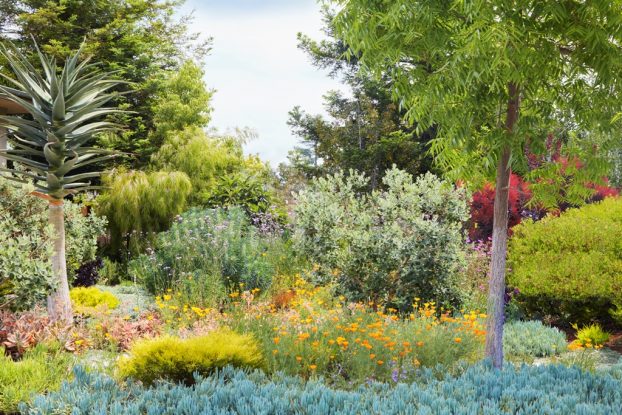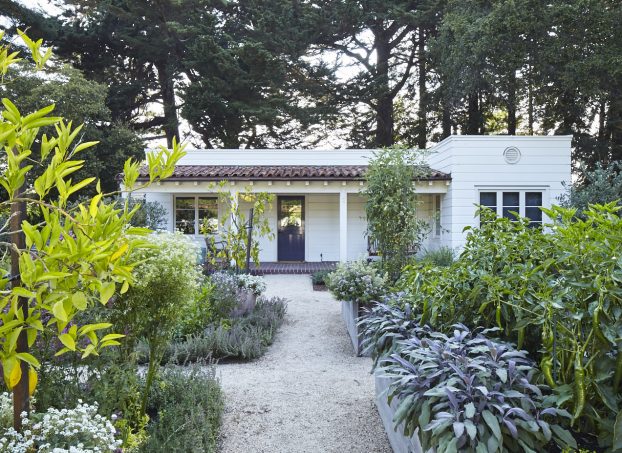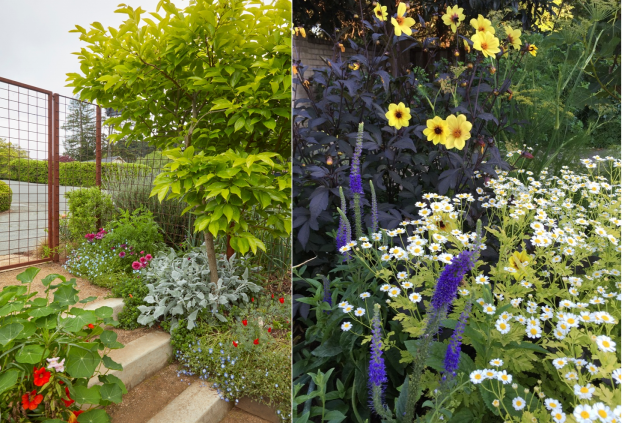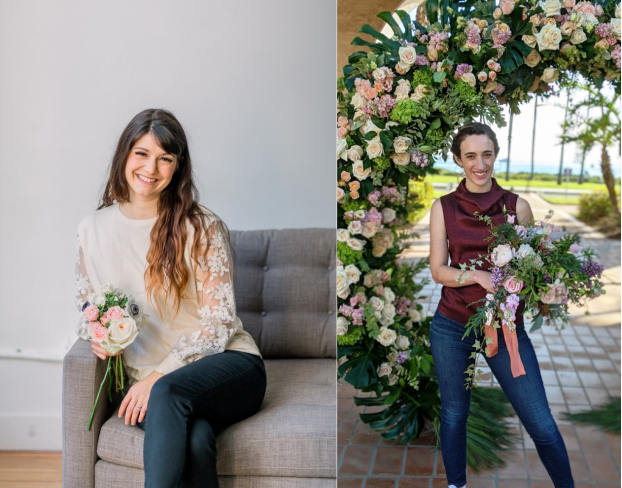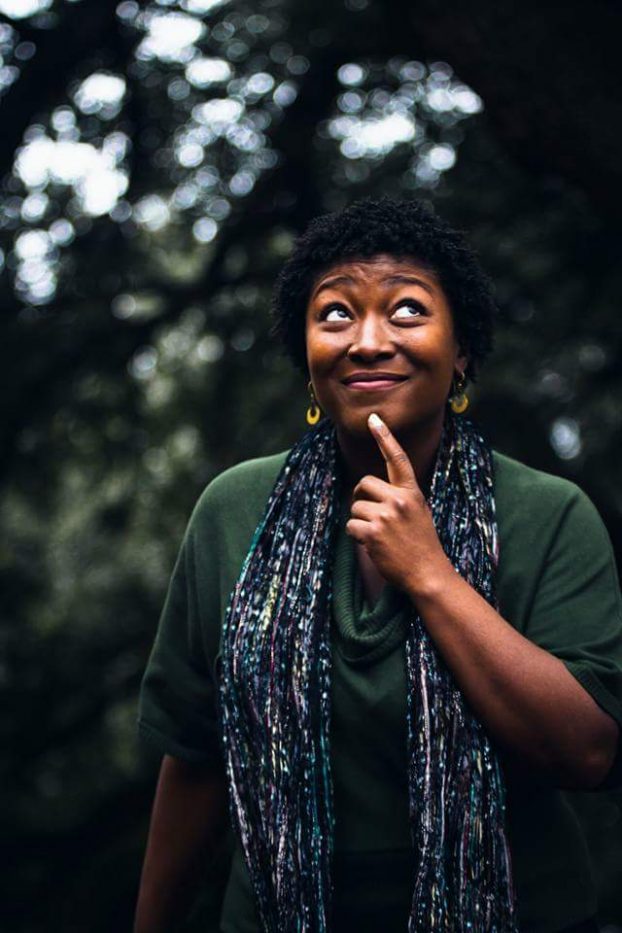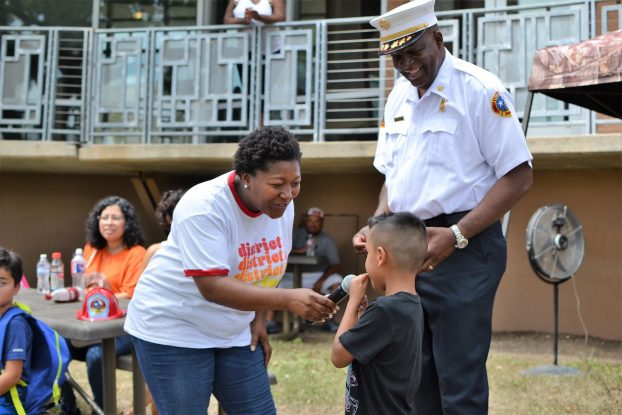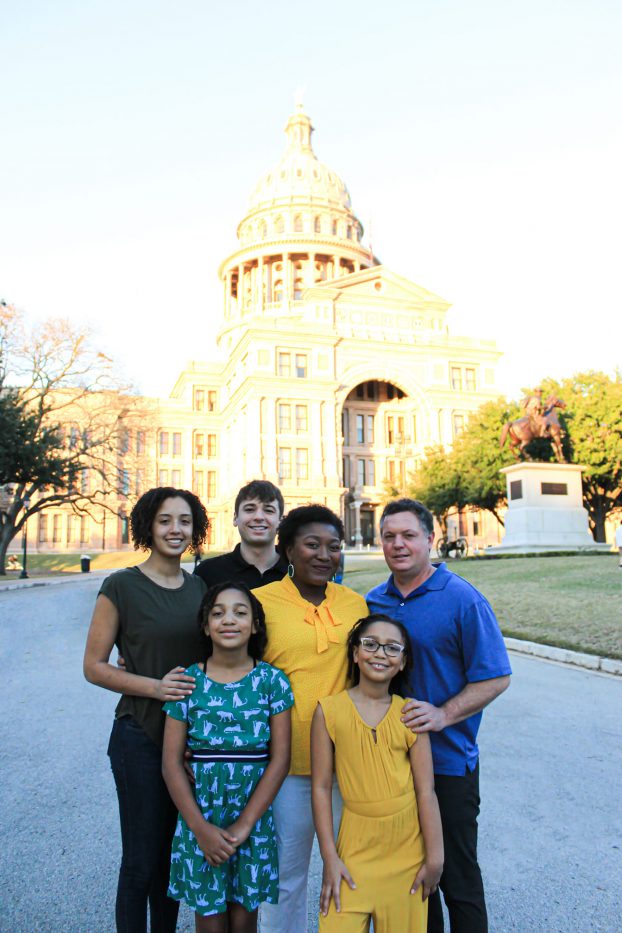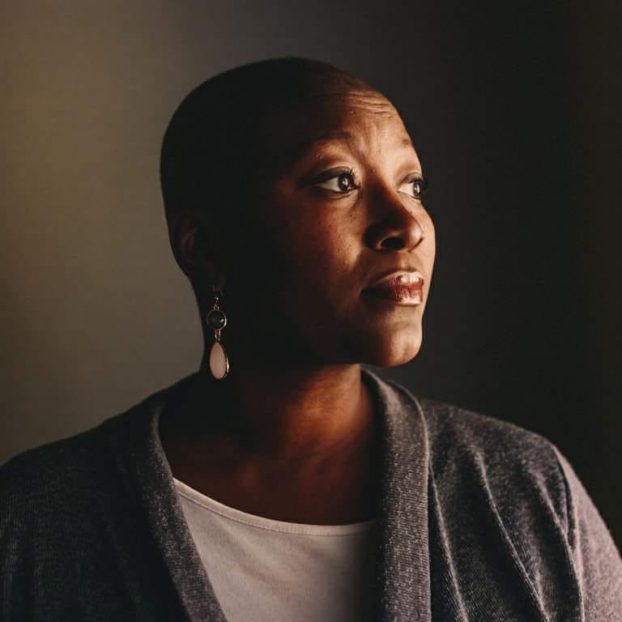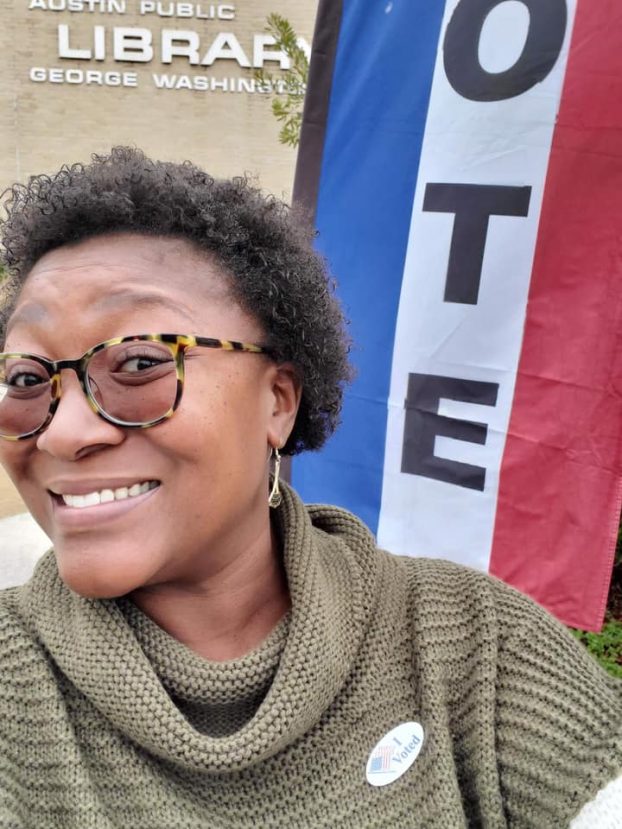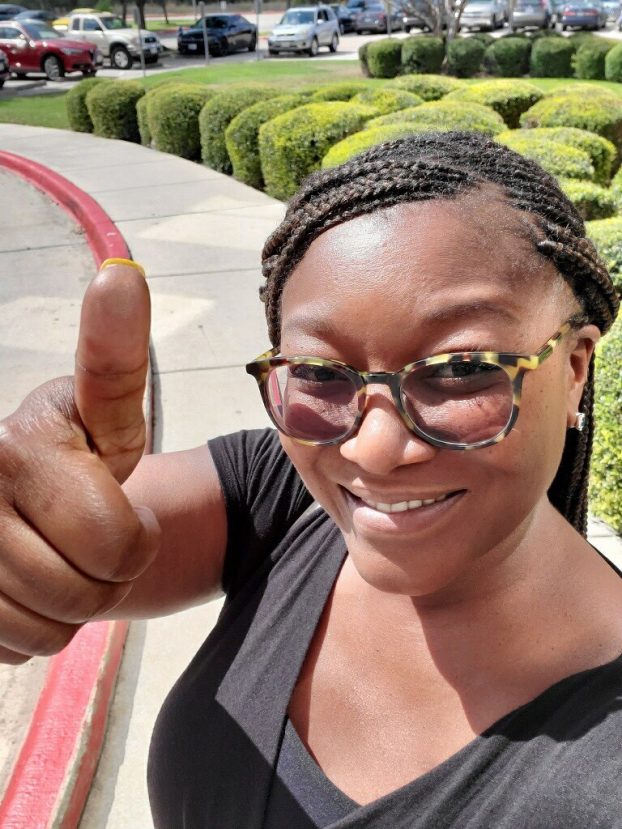Podcast: Play in new window | Download
Subscribe: Apple Podcasts | Podcast Index | RSS | More
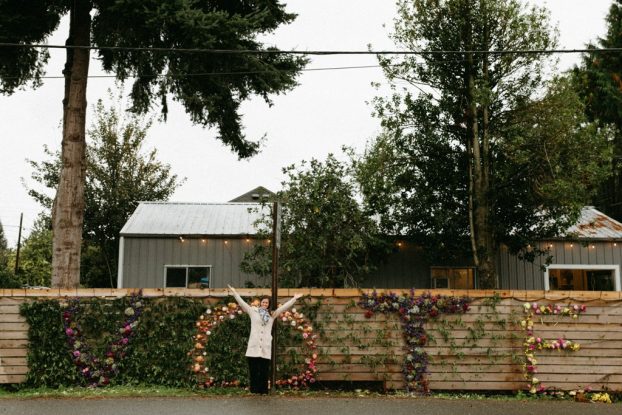
Before we jump into today’s main segment, I want to recognize that Election Day in the U.S. is coming up in just six days on November 3rd. I’ve been wowed by the creative gestures of floral activism from our Slow Flowers members around the country. I’ve invited one of those members to share what she’s doing in her community as a bonus interview. Let’s jump right in and meet Sarah Wagstaff of SUOT Farm & Flowers In Burlington, Washington.
This indeed has been a year in which I’m acutely aware that my business, career and personal acts need more meaning to reflect my values. I hope you find Sarah’s floral VOTE message as encouraging as I do.
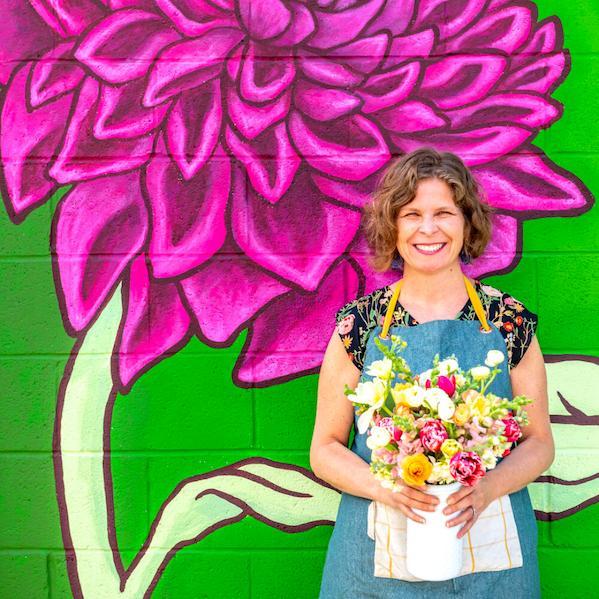
Okay, let’s jump right into today’s wonderful conversation with Ellen Frost of Local Color Flowers and Lisa Ziegler of The Gardener’s Workshop.
Both women are past guests of the Slow Flowers Podcast, so I’ve added links to their earlier appearances in today’s show notes. And full disclosure, The Gardener’s Workshop is a financial supporter of Slow Flowers and we consider its founder Lisa Ziegler an important partner in furthering our mission in the Slow Flowers Movement.
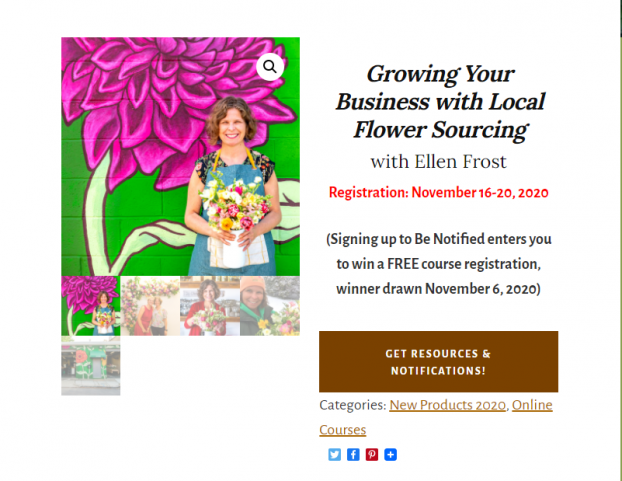
When Lisa told me that she recruited Ellen to create an online business course to help florists learn her unique flower sourcing approach, I knew this was an important topic for the Slow Flowers Community. I’ve asked them to talk about their project today. The course is called “Growing Your Business with Local Flower Sourcing.”
And guess what?! We have another course giveaway today! Ellen is giving away a complimentary registration to her new online workshop. “Growing Your Business with Local Flower Sourcing,” is a six-week course that begins January 4, 2021. Valued at $495, this is a generous giveaway! For listeners of this Podcast, be sure to make a comment in the show notes below — and tell us one of your favorite ways to source locally-grown flowers. All comments posted by midnight Pacific on Sunday, November 8th will be entered into a random drawing for Ellen’s course. Click on the link below to sign up for notifications when registration opens Nov. 16-20. I’m excited for the winner already!
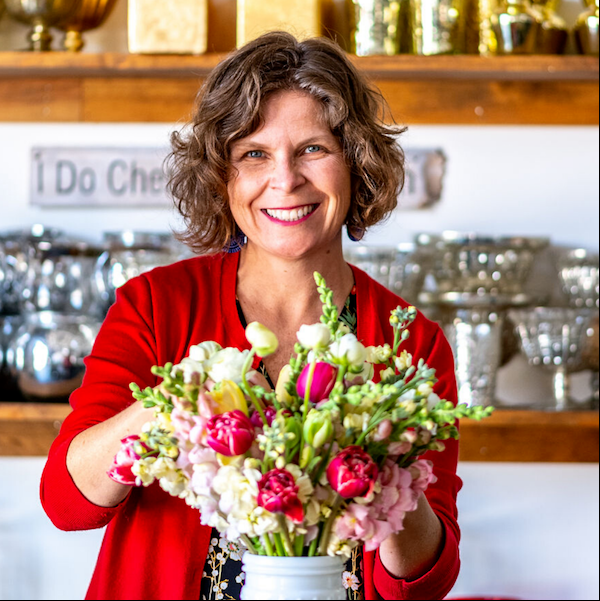
Here’s a bit more about Ellen Frost:
Ellen Frost loves flowers. Even more, she loves owning and operating a flower studio which exclusively sources local flowers. Ellen founded her company, Local Color Flowers, in 2008 as a part-time wedding floral business to provide Baltimore area couples a more sustainable flower option for their celebrations. Over the past 12 years, Ellen has grown Local Color Flowers into a thriving business adding floral design classes, corporate events, subscriptions, and retail as well as creative social and educational community events – all using 100% locally grown flowers. Ellen’s business is a vital contributor to Baltimore’s local economy and a vibrant community resource.
Here is the outline for “Growing Your Business with Local Flower Sourcing”
Class 1 — Landscape of the Cut Flower Industry
Class 2 — Why Local Flowers: Motivations, Definitions and Goals
Class 3 — Building Relationships With Local Growers
Class 4 — Logistics of Local Flowers
Class 5 — Differentiating, Marketing and Selling Local Flowers
Class 6 — Making Your Business An Indispensable Community Asset
Local Color Flowers on Slow Flowers Podcast
Episode 163 (October 15, 2014)
Find and follow Local Color Flowers at these social places:
Local Color Flowers on Facebook
Local Color Flowers on Instagram
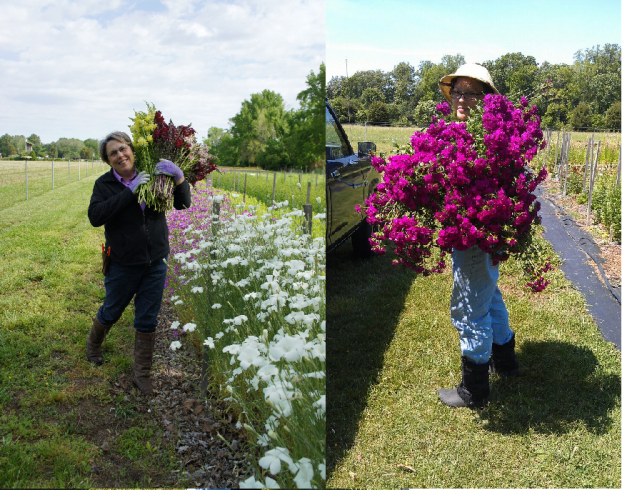
Here’s a bit more about Lisa Ziegler:
What began as a small cut-flower farm producing for local markets has grown into so much more. Lisa has become a leader in the cut-flower growing industry, author, accomplished speaker, teacher, and the owner of The Gardener’s Workshop.
Lisa is the author of Cool Flowers in 2014 (St. Lynn’s Press) and Vegetables Love Flowers (Cool Springs Press 2018.)
In 2018 Lisa began creating online courses to share her programs and knowledge. This style of teaching with its convenience, cost effectiveness, and lifetime unlimited access has proven to be another wonderful educational tool. In 2019, embracing technology even further and building an amazing in-house administration and support team has allowed Lisa to produce online courses for others.
Lisa’s farm, known as The Gardener’s Workshop is still a small market flower farm (100% outdoor field grown), and an online garden shop. The online store sells the same seeds, tools, supplies, and seed starting equipment that Lisa uses as well as signed copies of her books. Lisa’s simple, instructive, and delightful gardening messages are reaching far beyond any expectation she ever had.
The Gardener’s Workshop on Slow Flowers Podcast
Episode 159 (September 14, 2014)
Episode 391 (March 6, 2019)
Find and follow The Gardener’s Workshop at these social places:
The Gardener’s Workshop on Facebook
The Gardener’s Workshop on Instagram
Announcements
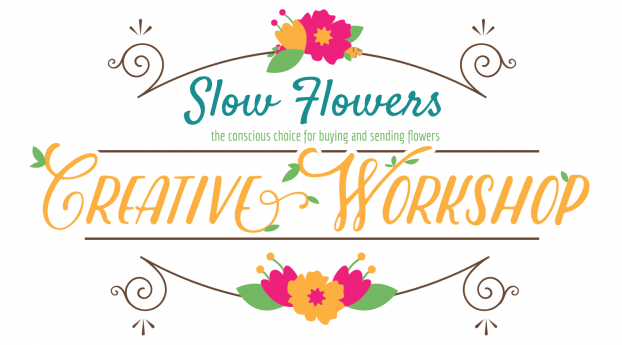
This is the final week you can sign up for my first online course, Slow Flowers Creative Workshop: Floral Storytelling. The course begins November 1st and you can take advantage of the $200-off introductory promo code, meaning you can enjoy this course for just $97. Sign up here and use SF97 for the discount. I’m excited to see you in the course!
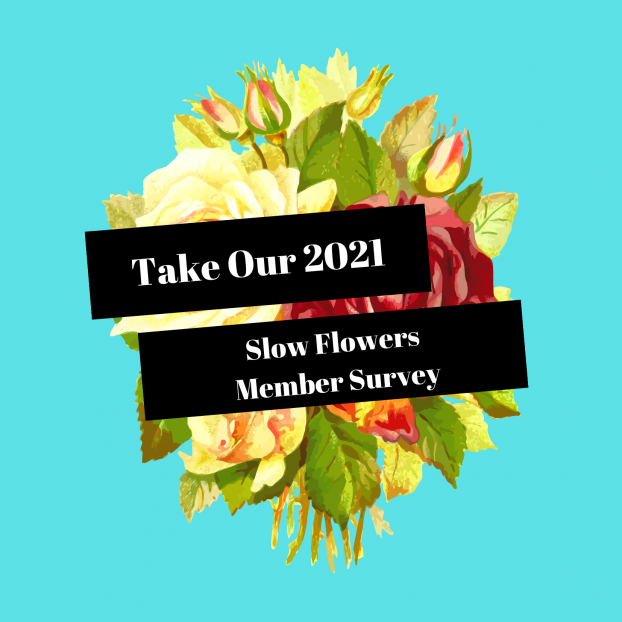
And Head’s Up: This is the final week to participate in the 2021 Slow Flowers Member Survey. We will close the survey link and end the giveaway promotions on October 31st, midnight Pacific Time. To thank you for sharing your time to take the survey, we’d like to send you an etched Slow Flowers Society botanical bookmark – and enter your name into the drawing for one free registration to the 2021 Slow Flowers Summit, valued at $599! But you must give us your name and contact information to receive the bookmark and enter the drawing — if you choose to respond anonymously, we can’t bestow our gifts! Click here to complete the survey.
Quick announcement before we get started. Last week, we promoted a giveaway for one VIP Pass to the Fleurvana Virtual Summit – Holiday Edition, taking place online this week through today. The winner is a Podcast listener and aspiring flower farmer: Jenni Hulburt, a wellness coach and host of The WILD Wellness Podcast. Congratulations, Jenni! And thanks to Shawn Michael Foley of Fleurvana! Click on this link to purchase your own VIP All-Access Pass to the conference. You’ll enjoy more than 25 floral design and business presentations, including my new session called Taking Stock: Writing your 2020 Year in Review & 2021 Forecast with Creative Intention.
Thank you to our Sponsors
This podcast is brought to you by Slowflowers.com, the free, nationwide online directory to florists, shops, and studios who design with American-grown flowers and to the farms that grow those blooms. It’s the conscious choice for buying and sending flowers.
And thank you to Florists’ Review magazine. I’m delighted to serve as Contributing Editor for Slow Flowers Journal, found in the pages of Florists’ Review. Read our stories at slowflowersjournal.com.
Longfield Gardens, which provides home gardeners with high quality flower bulbs and perennials. Their online store offers plants for every region and every season, from tulips and daffodils to dahlias, caladiums and amaryllis. Check out the full catalog at Longfield Gardens at longfield-gardens.com.
Rooted Farmers, which works exclusively with local growers to put the highest-quality specialty cut flowers in floral customers’ hands. When you partner with Rooted Farmers, you are investing in your community, and you can expect a commitment to excellence in return. Learn more at RootedFarmers.com
Syndicate Sales, an American manufacturer of vases and accessories for the professional florist. Look for the American Flag Icon to find Syndicate’s USA-made products and join the Syndicate Stars loyalty program at syndicatesales.com.
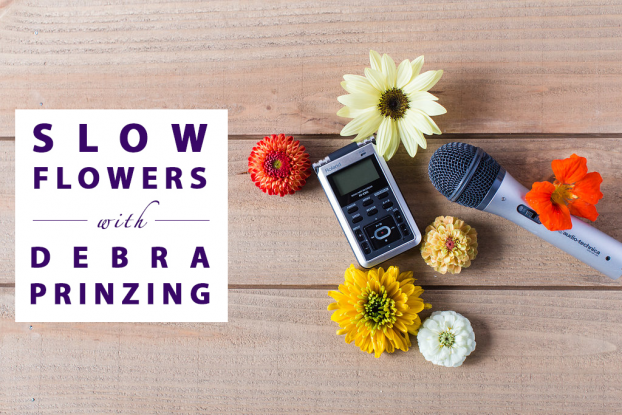
The Slow Flowers Podcast has been downloaded more than 653,000 times by listeners like you. Thank you for listening, commenting and sharing – it means so much.
As our movement gains more supporters and more passionate participants who believe in the importance of the American cut flower industry, the momentum is contagious. I know you feel it, too. I value your support and invite you to show your thanks and with a donation to support my ongoing advocacy, education and outreach activities. You can find the donate button in the column to the right.
I’m Debra Prinzing, host and producer of the Slow Flowers Podcast. Next week, you’re invited to join me in putting more American grown flowers on the table, one vase at a time. And If you like what you hear, please consider logging onto iTunes and posting a listener review.
The content and opinions expressed here are either mine alone or those of my guests alone, independent of any podcast sponsor or other person, company or organization.
The Slow Flowers Podcast is engineered and edited by Andrew Brenlan. Learn more about his work at soundbodymovement.com.
Music Credits:
Shift of Currents; Heliotrope; Turning on the Lights; Gaena
by Blue Dot Sessions
http://www.sessions.blue
Lovely by Tryad
http://tryad.bandcamp.com/album/instrumentals
http://creativecommons.org/licenses/by-sa/3.0/
In The Field
audionautix.com









